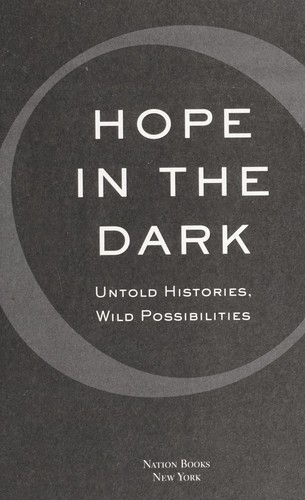el dang reviewed Hope in the Dark by Rebecca Solnit
Review of 'Hope in the Dark' on 'LibraryThing'
3 stars
Meh.
Actually that's not quite fair. I wish I'd read this when it first came out, because it would have saved me several years in getting a sense of what the nebulous-sounding global social justice movements that spawned things like the Seattle WTO protests were about. But reading it in 2018 I found myself too often reacting with either "how did you not see that [e.g.] Chavez was a problem?", or "yes, that's nice in itself, but we're so manifestly losing this battle". There are some useful rays of light in it, and Solnit's a great writer, but on balance I think this book left me feeling more hopeless and depressed.
Meh.
Actually that's not quite fair. I wish I'd read this when it first came out, because it would have saved me several years in getting a sense of what the nebulous-sounding global social justice movements that spawned things like the Seattle WTO protests were about. But reading it in 2018 I found myself too often reacting with either "how did you not see that [e.g.] Chavez was a problem?", or "yes, that's nice in itself, but we're so manifestly losing this battle". There are some useful rays of light in it, and Solnit's a great writer, but on balance I think this book left me feeling more hopeless and depressed.

